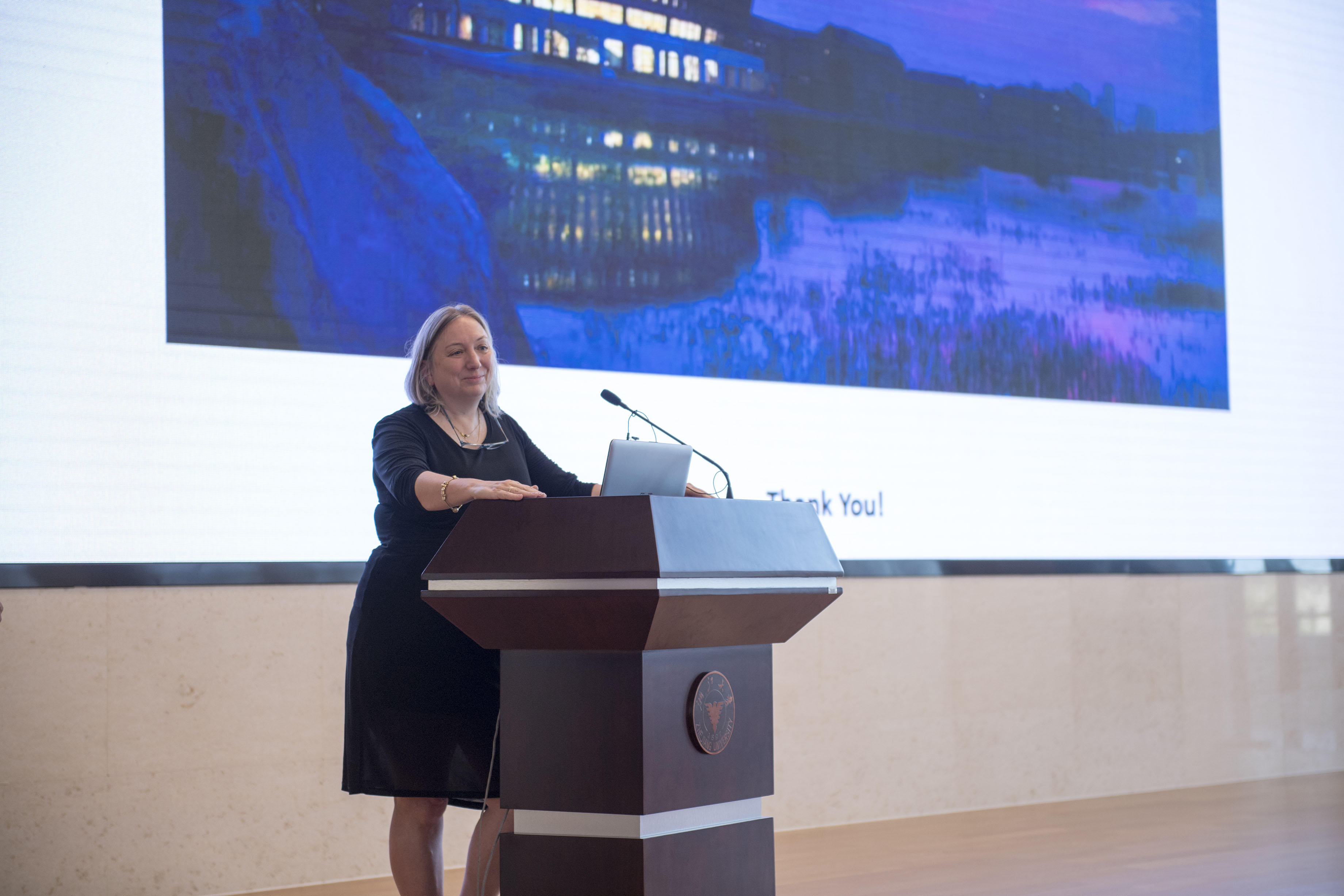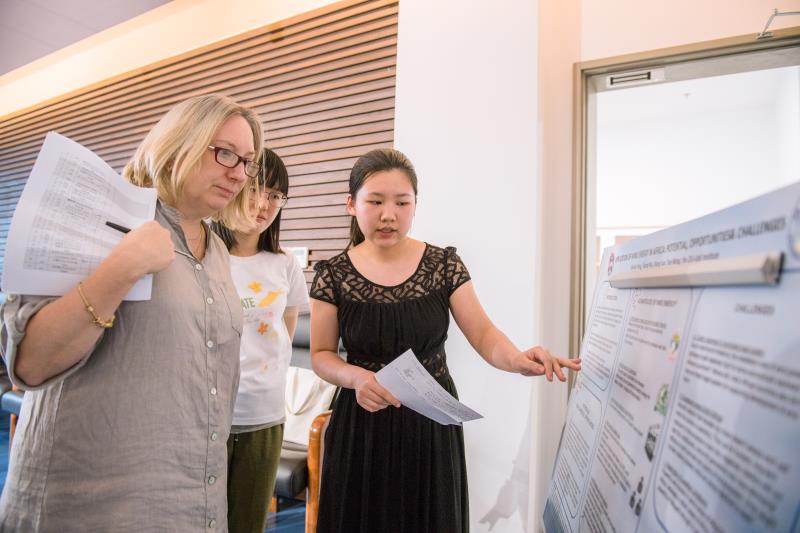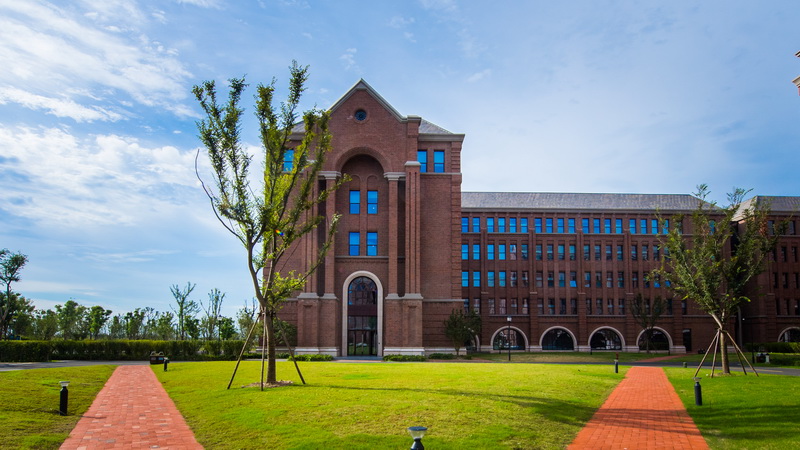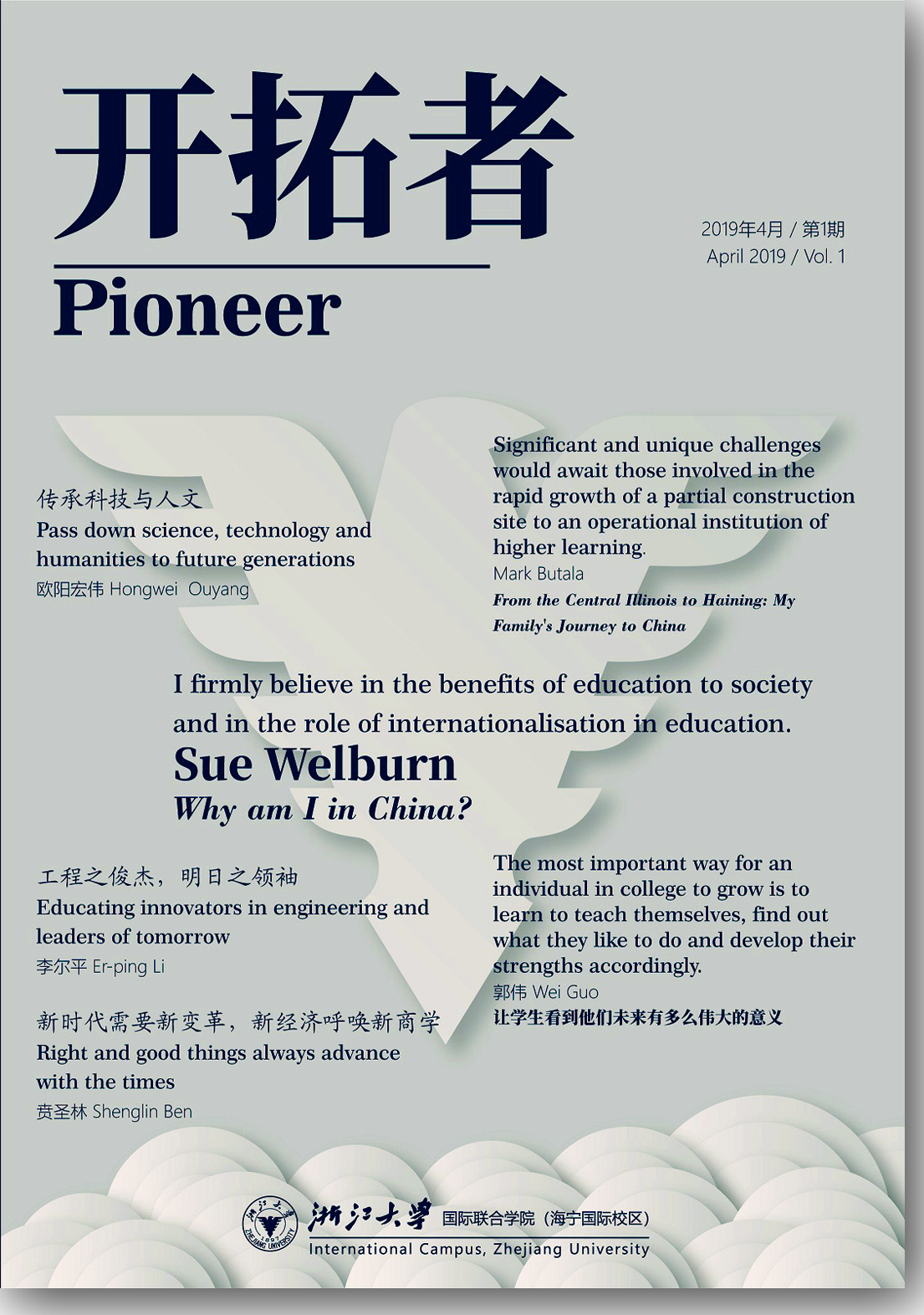Editor's notes: The first issue of "Pioneer", the in-house magazine of the International Campus, was published in April 2019.
It turns the spotlight on the "pioneering spirit" of the International Campus from a variety of perspectives, and provides updates on academic affairs. This article is from the "Insights" section of the first issue. It is written by Sue Welburn, Executive Dean of the Zhejiang University – University of Edinburgh Institute, Zhejiang University.
Why am I in China?
Sue Welburn
Hello Readers
I have the great privilege of being the Executive Dean of our Zhejiang University – University of Edinburgh Institute (ZJE) at Zhejiang International Campus. I am also Co-Chair for the British Council supported China-UK Joint Institute Alliance, supporting UK and China Joint Institutes. These leadership roles for engagement in China UK Trans-national Education are an honour for me.
A little about me
I have been a researcher for all of my adult life. I graduated with a PhD from the University of Bristol in 1991 and most recently being awarded a DSc from The University of Edinburgh in 2018, the later proof that you can never stop learning! I am immensely proud to be the Professor of Medical and Veterinary Molecular Epidemiology at Edinburgh Medical School: Biomedical Sciences, College of Medicine & Veterinary Medicine, University of Edinburgh and to also hold a Professorship at Zhejiang University, but without question, my greatest achievement is the mentorship of the 55 PhD students and many post-doctoral scholars and undergraduate students who have studied and worked with me over the years, both in the laboratory and in the field.
My research is focused on the design and use of molecular diagnostic tools for the study and management of neglected zoonotic diseases (anthrax, rabies, brucellosis, bovine TB, sleeping sickness, animal trypanosomiasis, echinococcosis, cysticercosis and leishmaniasis), developing integrated One ‘Public’ Health control methodologies for their control in human and domestic and wild animal populations. These neglected diseases are major causes of ill-health in people in Africa, Asia and Latin America. My research has encompassed research ranging from ‘grass-roots’ fieldwork to laboratory-based dissection of the problems at the gene level. I have experience ranging from the management of high-tech laboratory research to the running of applied field projects in developing countries. This work has resulted in over 200 research articles.
I did not come from an academic family. I was the first person in my family to attend University and have always had a keen interest in promoting access and opportunity to education. I have held a number of leadership roles at the University of Edinburgh promoting access to education; as founding Director of the Global Health Academy, as Assistant Principal for Global Health and latterly as Vice Principal for Global Access. I firmly believe in the benefits of education to society and in the role of internationalisation in education.

China Relations
The University of Edinburgh has a long and deep connection with China, with over 150 years of history. Huang Kuan, the first Chinese student to study at a Western University, studied Medicine in 1855 and obtaining a PhD in 1857 at the University of Edinburgh. David Duncan Main also studied Medicine in 1879 at the University of Edinburgh before becoming Principal of Hangzhou Medical Training College, now the 2nd Affiliated Hospital in Hangzhou, with which ZJE are now collaborating. Zhen Yao a pioneer of embryology & cell biology and Academician of Chinese Academy of Sciences graduated from Zhejiang University ZJU in 1937 before undertaking his PhD 1949 at the University of Edinburgh. I am truly honoured to follow in the footsteps of these giants.
Our Partnership
Our ZJE partnership is the University of Edinburgh’s largest and most prestigious overseas educational and research partnership, both in China and Globally. Our joint Zhejiang-Edinburgh Institute builds on the strong international traditions and reputations of two world leading Universities, committed to bringing forward the next generation of bi-lingual, biomedical scientists, innovators and entrepreneurs, so desperately needed if we are to realise the potential of basic and medical sciences discoveries that have emerged over the past few decades.
ZJE brings together >80 research active academic faculty, fostering collaboration in teaching and research across the major biomedical research themes that contribute to modern medicine, health and wellbeing. Undergraduate and postgraduate students’ study on our research-led dual award degree programmes, in state-of-the-art research and teaching facilities at Zhejiang University’s new International Campus in Haining, China. Our teaching is bespoke, shared, research led teaching, delivered in multiple formats (lectures, tutorials, practical classes and includes periods of intensive research experience, working with our scientists in dry and wet laboratories. Our students will emerge with specialist knowledge of topics including Regenerative Medicine & Stem Cells, Inflammation & Immunology, Infection & Molecular Medicine, Neuroscience, Cancer & Oncology and Bio-Medical Informatics. At capacity out Institute will support 600 Undergraduates undertaking 4-year dual award BSc Hons Biomedical Science and Biomedical Informatics degrees and 300 PhD students. Our academics are supported by an excellent team of administrators at ZJE, at UoE and at the International Campus. Successful students will obtain two degrees, one from The University of Edinburgh and one from Zhejiang University at the end of their studies becoming Alumni of two Universities ranked in the Global top 100.

ZJE is well positioned to provide the whole person education that our graduates need for their personal and professional career development in the years ahead, providing academic and personal guidance and mentorship. Our unique partnership provides international focus for both Universities considerable and broad-ranging strengths in bio-medical research, learning and knowledge exchange.
The implications of the increasing pace of technological innovation on medicine are likely to be profound. Our unique partnership provides international focus for both Universities considerable and broad-ranging strengths in bio-medical research, learning and knowledge exchange, feeding graduates into academia and into industry for the public and private sector, to improve health and livelihoods. Co-development of a Biomedical Translation Research Centre with Juanhu Lake International Science Park will accelerate the integrated pipeline of tertiary education, research and commercialisation, that is a priority for the regional development .
So why am I in China?
The role of Executive Dean of ZJE offered the opportunity to build something new and to leave a legacy. While I have worked Globally throughout my entire research career, prior to taking on the role of Executive Dean of ZJE, I had never visited mainland China! China is experiencing tremendous growth, emerging as a powerhouse of scientific discovery and innovation and I am delighted to be part of this. China is a fascinating place to live and work and my experience working at the International Campus over the past two years and living in China has not disappointed. All of the staff that contribute to the work of ZJE and the students studying with us are truly inspiring individuals. It is a genuine pleasure to be part of their journey. I love my job!
(Editor-in-chief: Xia Ping,Photos from ZJE website)
link to Pioneer Vol. 1






